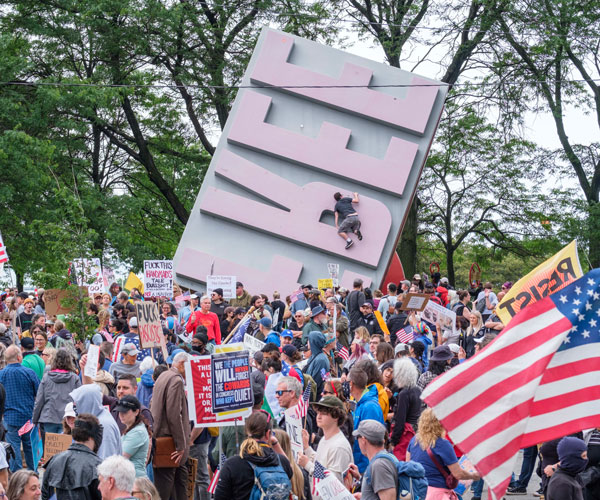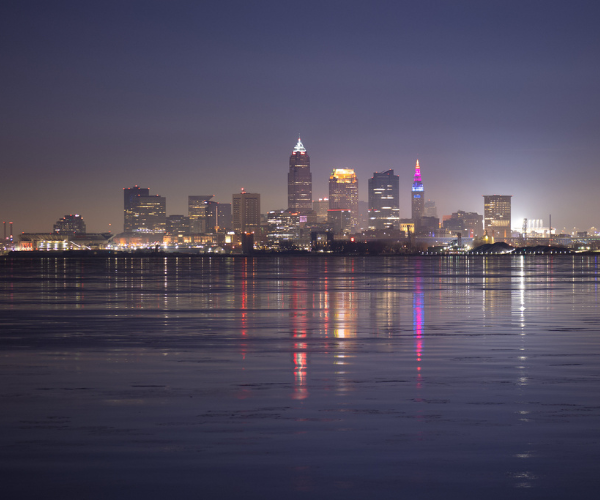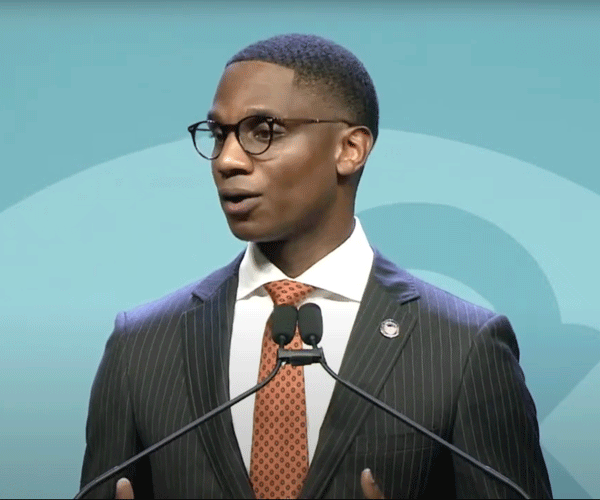The Case For
Marcy Kaptur
The Veterans Glass City Skyway rises far above the Maumee River and arcs over two Toledo neighborhoods. Until the 8,800-foot-long bridge opened in 2007, Interstate 280 crossed the river on a drawbridge. When a freighter came through, traffic bottlenecked.
Marcy Kaptur got the $237 million bridge built. The federal government paid about 80 percent of the cost because Kaptur used her clout in Congress to make it happen.
For 29 years, Kaptur has used her seat in the House of Representatives to change Northwest Ohio's landscape. She's gotten Toledo's historic train station fixed up and expanded the size of the Ottawa National Wildlife Refuge along Route 2. She's also left a mark on the capital: She authored the legislation that created the World War II memorial on Washington's Mall, an idea she picked up from a veteran at a fish fry.
Kaptur's intense pursuit of earmarks for local projects — pork barrel spending, others would say — has attracted tough scrutiny from The New York Times and her opponent in the last election. But it also shows how she views the job: leveraging her power to benefit her district. In Congress, where seniority and committee seats rule, she has both. Even now, with a temporary earmark ban in Congress, her rank as the No. 2 Democrat on the House Appropriations Committee gives her direct influence on the national purse.
Kaptur seems mild-mannered, like a kindly teacher, but she can fight. Her 2009 House speech, in which she told foreclosed-upon homeowners, "Be squatters in your own homes," got her a cameo in Michael Moore's Capitalism: A Love Story.
She describes her leadership style as reliable and steady. "I don't think I give [voters] a lot of surprises." Kaptur pushes for unsexy programs: farmers market coupons for seniors, a veterans mental health study at Case Western Reserve University. It can take a decade to get something big done in Congress, she says, but she'll chip away at it. "I like to show practical results," she says.
The Case For
Dennis Kucinich
This December, on the eve of his toughest re-election campaign since he joined Congress, Dennis Kucinich cast another of his lonely, outnumbered votes.
As tensions over Iran's nuclear program escalated, a bill to strengthen sanctions against Iran came up in the House of Representatives. Kucinich was alarmed by a line in the bill that would make it illegal for American officials to talk to any Iranian official who "presents a threat" to the U.S. "We [should] do everything necessary to prevent war, not take diplomatic options off the table," Kucinich wrote to his colleagues.
The bill passed 410-11. Kucinich voted no. He must have known it might provide ammo to Marcy Kaptur, his opponent in the March 6 primary. He didn't care.
Here are a few complaints you'll never hear about Kucinich, even from his critics: That he bends his principles to keep his job. That he's bought and paid for. That he's afraid to take a stand. Whatever drives Kucinich — be it ego, missionary zeal, or a confidence borne of his career's unlikely revival — he follows his conscience. He takes up nearly-lost causes with absolute fearlessness. In fact, long odds inspire him.
Yet he can't be dismissed as unbending or irrelevant. He compromised on his vision of nonprofit, government health care to cast a key vote for President Obama's health insurance industry reforms. His argument that Obama's bombing of Libya was unconstitutional seemed an outlier at first, but it provoked Congress into asserting its war-making powers.
Despite his roving from Syria to Seattle, the charge that Kucinich has forgotten Cleveland never quite sticks. When he shook Obama's hand after the State of the Union address this year, he didn't bend his ear about world peace, but about replacing the Innerbelt Bridge. He is counting on his long bond with Greater Cleveland voters to lift him past Kaptur.
"My involvement is a day-to-day, hour-to-hour awareness of what's happening and what the history is," Kucinich says. "I stay on top of everything here."



